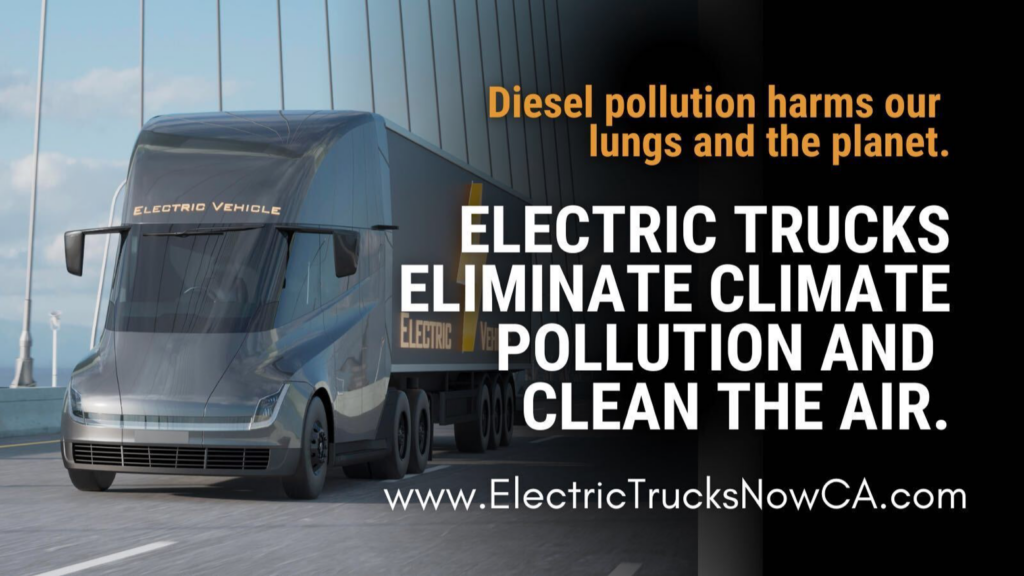Advocates push California on critical new fleet rule
November 17, 2022
As trucks from Amazon, FedEx, and others rumble up and down streets carrying our latest online purchases, they also spew clouds of pollution that are choking neighborhoods and cooking our planet.
Following the pandemic, the US weighs in as the second biggest e-commerce market in the world, and is expected to reach a staggering $1.3 trillion by 2025. Pollution such as nitrogen oxide and particulate matter is harming communities along the journey of each package. The e-commerce supply chain contributes greatly to the fossil fuel pollution that people experience every day, with low income communities of color disproportionately affected.
Right now, California is developing a groundbreaking rule that will require a zero emission transition of trucks used for deliveries. The Advanced Clean Fleet Rule (ACF) will transition public and private fleets away from dirty fossil fuel vehicles to zero emission vehicles. This law could be stronger than the federal clean air standards, which sets a precedent for other US states to follow.

The California Air Resources Board (CARB) is responsible for penning the final language for the Advanced Clean Fleet Rule (ACF). The ACF will require owners of certain heavy-duty truck fleets to purchase minimum numbers of zero emission trucks. It addresses these key areas:
- Trucks operating at ports or railyards known as “drayage” trucks
- State and local government fleets
- Federal fleets and large privately owned fleets
- Zero-emission vehicle manufacturer sales requirement
On October 27th, CARB held a public hearing – a critical moment for advocates to influence the rulemaking. Californians turned out in force to show CARB how much support there is for the new rule, and that it needs to be stronger to make a difference for our health and climate.
Clean Mobility Collective (CMC) partners People’s Collective for Environmental Justice and East Yard Communities for Environmental Justice led a caravan of clean air advocates to the hearing. Both groups are leading the fight to address air pollution from trucks that disproportionately impact low income, communities of color.
“Our communities have been targeted by the goods movement industry for warehouses, rail yards and freeway expansions over the last couple decades, which has resulted in thousands upon thousands of diesel trucks that come into our communities,” said Andrea Vidaurre, senior policy analyst for the People’s Collective for Environmental Justice, which represents immigrant and Black communities in the Inland Empire.

Other partners, Better World Group, NRDC, Sierra Club, and EarthJustice have also played a significant role in driving awareness of the rulemaking and driving turnout to the hearing.
After hearing testimony from environmental, labor and business, and environmental justice groups, CARB directed staff to consider strengthening the rule by:
- Requiring 100% of new heavy-duty trucks sold in California to be zero emission by 2036, four years earlier than proposed
- Decreasing the size of the fleets covered by the rule from 50, as proposed, to 10
CARB will announce the final language and timeline for the ACF in early 2023. The Clean Mobility Collective (CMC) encourages close attention be paid to this rulemaking. If strengthened, the ACF can set a precedent for cleaning up dirty deliveries, improving public health and holding corporations accountable for the transition to zero emissions.
By Victoria Leistman, Network Coordinator US/Canada with Clean Mobility Collective